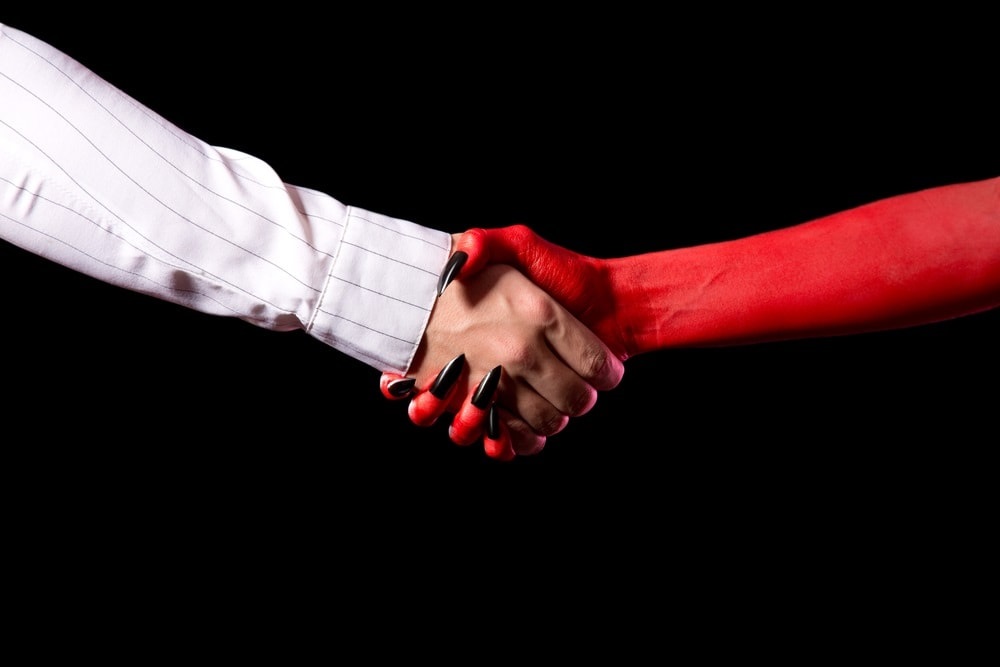
This may seem an odd question to ask, but has the “cost” of integrity created a commodity market in dishonesty? Can integrity be traded like an investment or derivative? In other words, if the price of integrity becomes too low, will the market for dishonesty rise to find equilibrium in a trade-off of values like any other marketplace?
The definition of a commodity has both positive and negative connotations. On the one hand, a commodity is defined as an “economic good” that is useful and valued. On the other hand, a commodity is defined as a good or service whose wide availability typically leads to smaller profit margins and diminishes in importance, a good that is subject to ready exchange or exploitation within a market.[i]
Today’s headlines are replete with examples where the cost of integrity has ceased to be a deterrent to bad behavior. What was once considered unthinkable from leaders in government and politics, corporate America, professional sports, religion and any other field has become commonplace. Reputations, built over many years of fair dealing and honest treatment of customers, employees and the public are being destroyed in the pursuit of gain that violates a trust the public places in its institutions. An entire industry has sprung up of Spin Doctors whose sole job it is to justify bad behavior after the bright light of disclosure reveals what was hidden.
A cynic views integrity as a trade on the open market like a derivative instrument to hedge against falling stock prices, global competition, market share and personal financial gain. Integrity is sold short to hedge against a perceived loss of market leadership. Initially, the cost of the hedge is cheap and leverage pays off in short-term financial gain. Over time, the cost of the hedge becomes more expensive as competition catches on, pushing the cost of the hedge higher. In order to maintain the appearance of sustainable growth, the “integrity hedge” gradually transforms into a more speculative one-way trade, a naked short of integrity, in anticipation of recovering some lost ground. Eventually, the market shifts, with some players becoming huge winners and others subject to diminished stature or, worse, financial ruin.
An optimist views integrity as goodwill. A corporate asset or valuable brand that grows in value over many years of fair dealing and ethical behavior, even when tough choices must be made. Integrity is not viewed as a trade for something of more value; it is viewed as a source of value. Viewed in this light, integrity is an intangible from which a premium can be derived through a history of trust, innovation, healthy competition of ideas and reputation. Integrity is a cultural phenomenon that, when authentic, is more effective than any risk framework could ever hope to become; yet, when inauthentic, it cannot go undetected for long.
Most executives or community leaders who find themselves in the throes of scandal, shame or caught in some embarrassing revelation, seldom consider their actions or decisions to be a trade in a marketplace of integrity, yet the analogy is real. And, like all markets, integrity (or the loss of it) has tail risks that appear to have low probability. All the same, the lesson is that firms should anticipate changes in attitude about the cost of integrity. No matter how subtle the calls to sell just a little integrity short, the first trade is seldom the end of the story.
But how does any organization deal with the risk of bad behavior when it is initiated from the top down? There are few easy answers to this question, but there are ways to become aware of these dangers and put checks in place to limit any damage. Firms should anticipate that any leader of any organization can push the boundaries of integrity and trust. Formal and informal processes and lines of communication must enable feedback that anticipates changes in ethical judgment. Ethical lapses can be mitigated by distributing power and authority such that no one or small group of executives can dominate without collaboration on a large scale. Secondly, compensation should be structured in deferred payments over several business cycles with ethical clauses. Executives should be rewarded for appropriate risk-taking and dis-incentivized for taking excessive risk. Appropriate risk-taking is structured to build long-term value and limit large shocks to capital. Thirdly, an environment must be created to allow discrete dissent without repercussions.
Dealing with uncertainty is one of the big risks all organizations must become more adept at managing, however; when uncertainty is wrapped in unethical baggage, no one person or small group of people should have sole authority to forfeit the integrity of the entire firm for personal benefit. Lastly, active listening for signs of trouble is the lowest-cost approach to become aware of trouble. Many take listening for granted, but most fraud or some form of fraud is typically apparent if one looks hard at the issue. In other words, it [bad behavior] is hiding in plain sight. However it is accomplished, a firm must have the ability to ask this question: would the firm be proud if the public became aware of our behavior, actions or decisions?
Become aware of the signs and behaviors that lead to a short-sell of integrity and put processes in place to curtail it before the threat is realized.
[i] http://www.merriam-webster.com/dictionary/commodity
Published by Conselium Executive Search, the global leader in compliance search.

